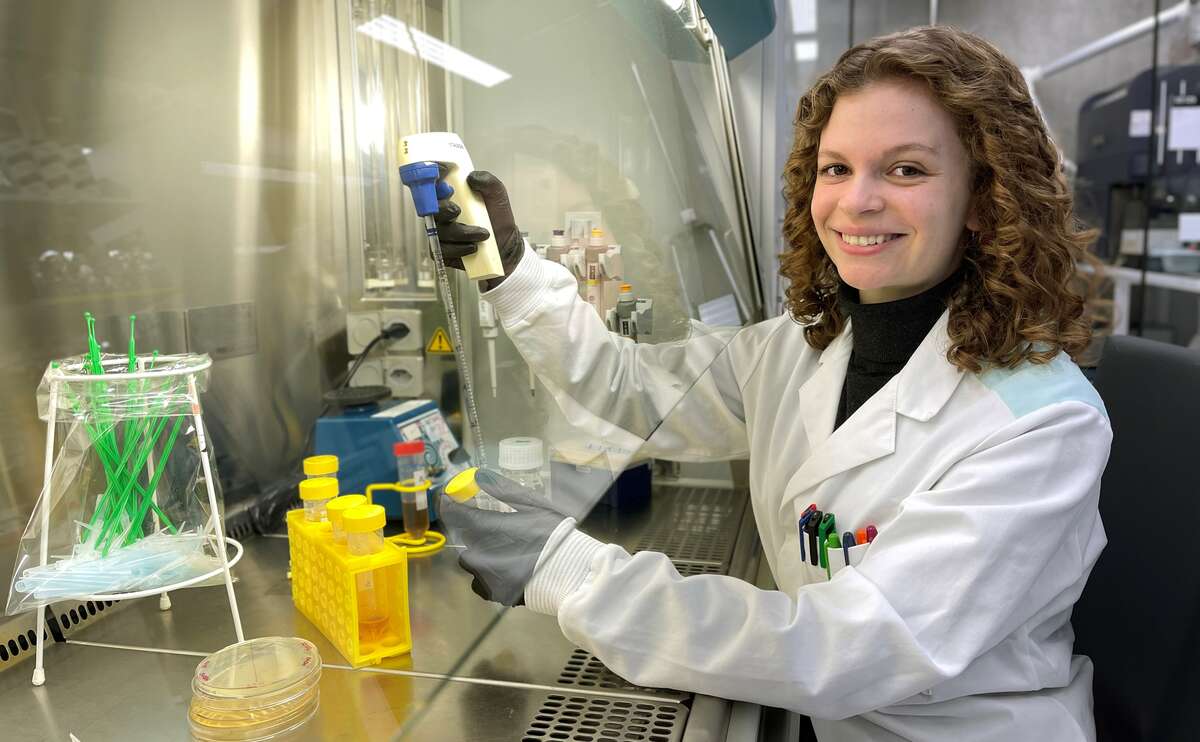Fabienne Estermann, PhD Student, Group Bumann

Tell us more about your PhD project.
The aim of my PhD project is to better understand the physiology of the hospital pathogen Pseudomonas aeruginosa in patients with acute pneumonia. What kind of stresses is Pseudomonas facing in the host and how does it react to it? To address these questions (and many more), we receive samples from the hospital, and look at the proteome of Pseudomonas. Better understanding of pathogens in patients will help us develop more relevant in-vitro conditions for antibiotic drug testing, which then hopefully will result in the discovery of new antibiotics.
Why did you decide to do a PhD?
After my MSc in Microbiology I did an internship at Roche for a year and changed field to systems biology and bioinformatics. This was still in a research context and a very enriching experience. Besides building my skills in bioinformatics and coding, the most important thing I learned was that I want to continue asking my own research questions, coming up and testing my own hypothesis rather than being the executing hand of someone else. Doing a PhD and the perspectives afterwards give me this possibility.
Why do you like doing research?
I love doing science because the process of learning what knowledge exists, identifying unsolved problems, coming up with and testing a hypothesis is very rewarding. This process is incredibly multifaceted: you need to assess knowledge critically, brainstorm new ideas, plan and execute experiments, manage your time and projects, make decisions on next steps, communicate your research and much more. All these aspects make being a scientist incredibly diverse job that never gets boring.
How can we inspire girls and female high school students to pursue a career in STEM *?
For me one of the most important things is representation. I think institutes could do better showing the diverse group of people that are scientists. For example, whenever there is a press release, and the article only features one portrait of a male, white professor, probably only few girls or young woman can relate to or identify themselves with it. Why not start including pictures of the co-authors of the papers? This would already improve visibility of women (and minorities) in science and at the same time show how much of a team effort science is nowadays.
I also think initiatives like the Basel Summer Science Academy are important as they bring high school girls and boys into the lab before they will choose what to study. I hope some of the girls are then convinced that science is just as much for them as it is for the boys.
What do you wish for the future?
My wish for the future is that we as a society get to the point where we will stop asking women questions that men usually don’t get: How do you plan on raising a family and have a career? Don’t you want to spend more time with your kids? Do you have a safety net that can take care of the children if you are needed at work? These questions are still rooted in a sexist society where a woman’s place is at home with the kids. But in a modern family both family and career should be a team effort. If we still put the pressure of running the family and household alone on the shoulders of women, we are losing a big part of the untapped potential of half of our population.
* STEM = Science, Technology, Engineering and Mathematics


